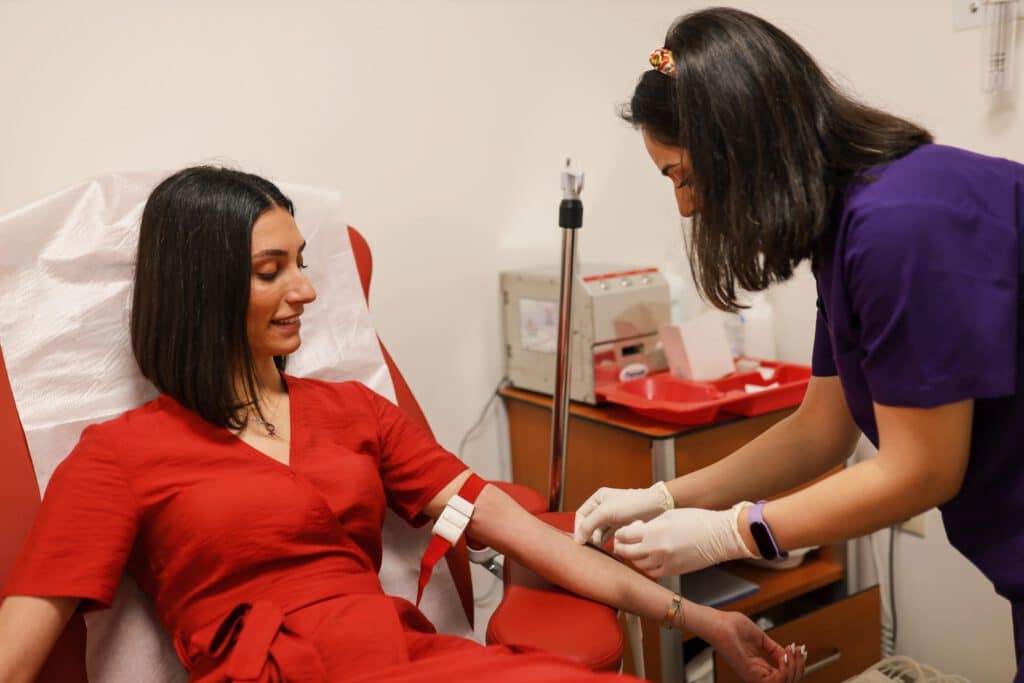Professional and support staff

wanted in every company
Professional and support staff
Have you already completed your training? Then apply now and start your future in Germany. For citizens of the European Union, there are special features regarding professional recognition. The EU Directive on the Recognition of Professional Qualifications stipulates that professional qualifications are generally recognised as equivalent in the EU member states, thus granting professionals free access to the labour market.
Advantages as a professional or support staff member in Germany

Safety!
Germany offers you a secure future, strong economy and politics enable you to live safely in Germany.

Rich in opportunities!
High chance of finding a job, as there is a shortage of skilled workers in Germany.

Income!
Secure an income in Germany that is well above the cost of living.

quick job start!
If you have completed a recognised training programme or already have professional experience, then nothing stands in the way of a quick career start. After a short training period, you can already start working for your new employer.

good perspective!
With vocational training, you are fit for the future. Because committed and professionally qualified skilled workers are in demand on the labour market.

Further training opportunities!
After vocational training, one has not yet finished learning. Further training imparts additionally required knowledge and is therefore often financed by the employer.
Nursing specialist in care
What does a nursing specialist do?
As a nursing specialist, you look after and care for people in various institutions, for example in a hospital or in care for the elderly. You carry out medical orders for the care of patients by administering medication or caring for wounds. You also assist with medical procedures and document all steps. This keeps the entire staff informed about the treatment, medication and other treatment details. The aim of your work is to help people improve their physical and mental health.
What is the everyday working life of a nursing specialist like?
As a nursing specialist, you care for people of all ages in the field of nursing and care for the elderly. In basic care, you bed people in need of help and support them in eating and personal hygiene. In addition, you take on many organisational tasks in this occupation. You plan and coordinate the care measures so that each patient receives the attention they need. Even with good planning, the working day can be stressful. For example, when new patients come to the ward or the need for care is higher than expected. In addition, you are the contact person for patients and relatives. This means that you always have an open ear for your patients and take their needs into account. Elderly people and children in particular need more attention. You also provide appropriate answers to questions from relatives. You report to them on the current state of health and inform them about upcoming care measures.
Where do you work as a nursing specialist?
With your training as a nursing specialist, you will work in hospitals, specialist practices and health centres. You can also work in residential and nursing homes for the elderly, in outpatient care services and in short-term care. You can also find employment in hospices and residential homes. 90 per cent of the training we provide takes place in residential and nursing homes for the elderly.
Training to become a nursing specialist is not a gift, but it is all the easier to enter the world of work afterwards.
– Hr. Würzner, Apprentice
After my training, I gained experience in practice for a while. I was offered further training to become a ward manager and I may soon be able to manage the geriatric care unit.
– Fr. Vargová , Nursing specialist
What are the requirements for working as a nurse in Germany?
In order to work as a nurse in Germany, you have to fulfil a few requirements if you have completed the relevant training in Slovakia:
- Recognition of education: Your training in Slovakia must be recognised by the German office for the recognition of foreign professional qualifications (Zentralstelle für ausländisches Bildungswesen – ZAB).
- German language skills: You must prove sufficient knowledge of German, which is required for the nursing profession. This can be done via an examination or a recognised language test (e.g. German B2).
- Practical experience: In order to be able to work in Germany, you must have gained at least one year of practical experience in a nursing institution in Slovakia.
- Health suitability: You must provide a medical certificate confirming your health suitability for the nursing profession.
- Legal compliance: Make sure that you meet all legal requirements necessary to work in Germany, including a valid work permit.
Career opportunities & future prospects as a nursing specialist
The future prospects are varied and can be divided into the areas:
Further training: One possibility is to specialise through further training and become active in certain areas of nursing, such as intensive care or palliative care. Further training to become a nursing service manager or nursing manager can also lead to being able to take on managerial positions in nursing.
Studies: Another option is to study nursing sciences or health management. With a degree, one can also aspire to senior positions in nursing or in the management of health care facilities.
Further development of the occupational profile: In Germany, the occupational profile of the nursing specialist is being further developed within the framework of the nursing reform. In this context, the competences and responsibilities of the nursing specialist are to be strengthened in order to ensure better care for patients and those in need of care.
High demand: Due to demographic developments and the increasing need for care services, the demand for care professionals is expected to continue to rise in the future. This can lead to good employment prospects.
Salary: The salary of skilled nursing staff has risen in recent years and is expected to continue to rise in the future. This is due on the one hand to the shortage of skilled workers and on the other hand to the increased appreciation of the profession.
It is up to you to decide which opportunities you want to take advantage of in your future career.
You are interested?
